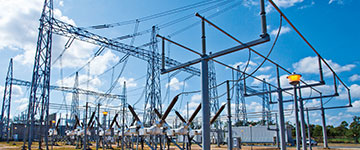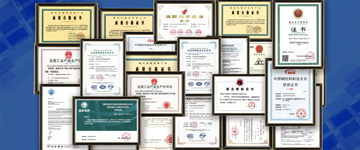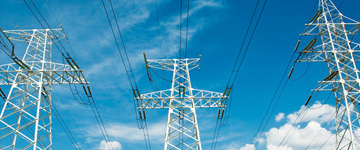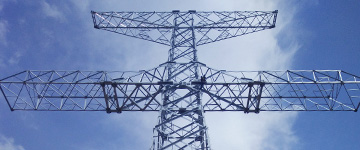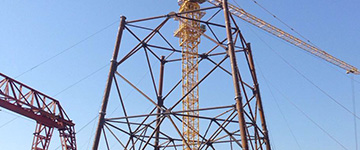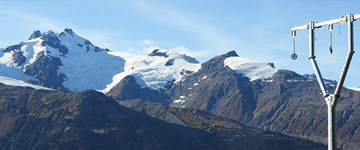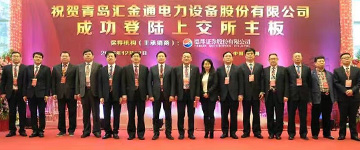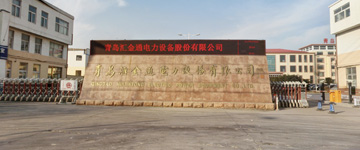Following the acquisition of Portugal's national energy company two years ago (REN) 25% of the shares after the end of July, the national Power Grid Corp acquisition of Italy state-owned financial institutions CDP (Italy loan company) a wholly owned subsidiary of CDPRETI (Italy energy network company deposits and loans) 35% of the shares. Seize the opportunity of European energy companies shrinking and privatization of state-owned assets after the European debt crisis. The national Power Grid Corp successfully entered the field of European public utilities which is inconsistent with foreign investment and transformed into the role of strategic investors.
The data showed that from 2009 to 2013, the profit of the overseas investment business of the State Grid has increased from 800 million yuan to RMB 3 billion 200 million yuan, up 309%. Cheng Mengrong, head of the International Department of the national Power Grid Corp, said the company's overseas project yield is usually close to 10% to 10%, far higher than the domestic level.
"We invest abroad, and this investment is to be profitable, not a public service." Cheng Mengrong said that the national Power Grid Corp overseas investments do not care for this and lose that domestic and international flexible configuration, but the two aspects of resources, to domestic and foreign mutual promotion, so as to realize the value of state-owned assets.
The overseas rate of return is 3 to 5 times that of the country
In July 31st, Italy Rome wantonly drizzled for several days. Finally, the national Power Grid Corp acquired 35% shares of the wholly owned subsidiary of Italy deposit and loan. The dust settled. Why did Italy choose to sell the project at the moment? How does the national Power Grid Corp make the decision to enter the stock market? What is the process of the whole negotiation? In what way will the project be made profitable after the acquisition? "The sale of government assets is an important part of the government's debt reduction plan by the Italy government. In November 2013, the government of Italy announced a 12 billion euro privatization plan, including the energy network assets of the Italy deposit and loan company. " Cheng Mengrong introduced that energy network assets such as the European power grid have been one of the key directions of the overseas investment of the national Power Grid Corp.
Compared with the difficult and prudent way to "go out" several times, the "two European lines" of the national Power Grid Corp have been written more leisurely and indifferent. In September 2013, Liu Zhenya, the chairman of the national Power Grid Corp, held talks with Italy savings and loan companies in Italy to understand Italy's privatization process of state assets. In December 24, 2013, the national Power Grid Corp received the first phase of unconstrained invitations from the Italy deposit and loan company.
Subsequently, the national Power Grid Corp set up a project team, hired external advisers, carried out the desk due diligence and valuations and so on, and submitted non binding quotations. In May 6, 2014, the national Power Grid Corp received the second stage bidding process letter from Italy's deposit and loan, and invited the state Power Grid Corp to participate in the second stage restrictive bidding. Through the work of desk and field due diligence, management interview, valuation and competition situation analysis, a constraint offer plan is put forward, and the binding quotation is submitted in June 30th after the company's decision procedure. The two sides finally reached an agreement through clarification and discussion of the quotation conditions and completed the contract in July 31st.
In response, Reuters reports that as the largest public utility company in the world, the State Grid has been cautious and grasped the opportunities brought by the privatization of state-owned assets by the southern countries of the euro zone.
"In these countries we cast in terms of return on investment is two digits, but not high to twenty, thirty. Developing countries, such as Philippines and Brazil, are slightly higher and Europe is relatively low, but Europe's investment environment is stable. In any case, the rate of return is higher than the domestic rate of return, and the rate of return is 3 to 5 times that of the domestic. " Cheng Mengrong confessed.
"Regulatory policy is the basis of the project's profit. Italy's electricity and natural gas regulatory policies are mature and transparent, with better regulatory returns and less operational risk. " For the industry concerned about the project operation and profit mode, Cheng Mengrong said that Italy energy network business belongs to the natural monopoly business and operates under the regulatory policy framework. According to the regulatory policy, the revenue of the regulatory business mainly includes operating expenses, depreciation and return on assets. Operating costs reclaim the cost of production and operation, depreciation and recovery of asset investment, and the return of assets to form the profit of the enterprise. And the return on assets is based on the regulatory assets, multiplied by the rate of return on supervision. The rate of return on supervision is linked to the risk free interest rate, but it has nothing to do with the actual energy, and the operation risk is small.
Cheng Mengrong added that a perfect governance structure is also a guarantee of the project's profit. Italy power transmission company (Terna), Italy natural gas network company (SNAM) is a well-known Italy listed companies, shareholders, directors and management rules in Italy law and the listed company responsible for its facilities, has formed the perfect governance structure, the interests of small shareholders are fully guaranteed. In addition, the national Power Grid Corp also dispatched directors and managers to the Italy deposit and loan energy network, Terna and SNAM to further safeguard the interests of the shareholders.
Overseas assets will account for 10% in 2020
Reporters learned from the national Power Grid Corp, as of June 2014, the company's overseas investment actually invested nearly 3 billion dollars, overseas equity projects total investment of more than 11 billion U.S. dollars, overseas assets of over 23 billion U. S. dollars.
According to the national Power Grid Corp under the stage of international development goals, the company will be "three capital" (power grid, power supply, electrical equipment and resources) as the focus, safe and efficient to develop the international market, and gradually form a diversified pattern of international business: 2015, overseas power assets scale to achieve the company's total assets 8%, international business profit contribution rate of more than 15%; 2020, overseas power assets to achieve the company's total assets 10%, international business profit contribution rate of more than 20%, some overseas listed companies, has a strong global allocation of resources and the overseas capital operation ability and outstanding international competitiveness.
To this end, Cheng Mengrong said that at present, overseas assets account for 5% of the total assets of the national Power Grid Corp, and the problem of achieving the above international goals is that the company's domestic investment growth is also very fast. "We are concerned about the countries and regions with more stable political and economic returns and more stable market mechanisms." Cheng Mengrong confessed that there was still a lot of uncertainty in the future of the company's overseas expansion.
There are many queries about the overseas practice of the State Grid. The representative view is "the power grid in China has not been built yet. Why do we need to build foreign power grids?" "We invest overseas, not only exporting the leading technology of the company in the field of transmission and distribution, but also achieving stable returns and inflation protection under a standardized and transparent regulatory framework to ensure the preservation and appreciation of state-owned assets." Cheng Mengrong said frankly that in addition to the macro policy background and the pursuit of greater profit margins, the deeper reason is that internationalization strategy is the inevitable choice for enterprises to transform their development mode.
In the latest world top 500 list of fortune 2014, the national Power Grid Corp succeeded in winning the top seventh of the world's enterprises. Reporters noted that the ranking of their international counterparts in the list are: Italy electric power company (ENEL) ranked fifty-second, the French power company (EDF) ranked seventy-seventh in Rhine, Germany (group RWE) ranked 139 in Spain, Ebe della Electric Company (IBERDROLA) ranked 234. And AEP, RusHydro, and so on are not in the top 500.
Cheng Mengrong reminded reporters that both French and Italy electric power accounted for a large proportion of their overseas assets. For example, Italy electric power company's overseas assets account for nearly 50% of the total assets, and the French electric power company accounts for about 40%. "In the past few years, we have more in-depth exchanges with many multinational companies, we deeply appreciate that, to make the premise of a world-class enterprise, is to carry out the international development, go not out of sight is always the 'landlord' horizons, rather than a global vision of capital. There is no international development and a world - class company. " Cheng Mengrong said.
[source: China Electric Power Newspaper]



